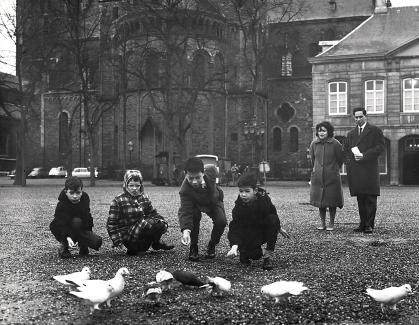If you notice your child might be considered in the group of late talkers, here are some ways to bridge the gap from speech delays to success with spoken language. The following how-to guide provides some helpful insight in teaching language principles to those who might be considered late talkers. Although speech delays can vary, these ideas are to help all children with spoken language.
Spoken Language for Late Talkers
Spoken language is often first found as a delay in toddlers. A parent may notice that their child is not using the same number of words as their peers and perhaps cannot produce many of the same sounds. Often the parent may seek advice from their pediatrician and then be referred to the appropriate services. Often for 0 to 3 year old, these are referred to as Early Intervention Services, but it varies from state to state. If the child is older, these services can be provided through their local school district. The child then goes through an evaluation process with multidisciplinary professionals. This is often when delays are identified and appropriate services, such as Speech-Language therapy, preschool, and Early Intervention, are deemed appropriate.
For children with speech delays, there is often much hope at this point that the intervention will help to resolve any learning disabilities that the child may have later on.
Teaching Techniques for Late Talkers
The teaching techniques include, but are not limited to:
- Teach in the child’s natural environment where the same principles can be applied daily, so that the child can have more time to learn skills
- Teach at the child’s developmental level and not the age level, so that the child can get individualized instruction that is appropriate for them
- Constantly engage the child in verbal communication where output is rewarded, so that the child gets used to hearing their voice and knows that sound is socially appropriate
- Play helps keep the child engaged and learning social rules, like turn taking
- Feeding and swallowing techniques, or oral motor stimulation, may be used to promote the child’s oral awareness and functioning. For example, the child may have low oral motor strength/ tone and therefore not be able to produce appropriate sounds.
Related Articles
How to Help with Language Delays
Should My Child Be Talking? Could My Child Have a Speech Delay?
